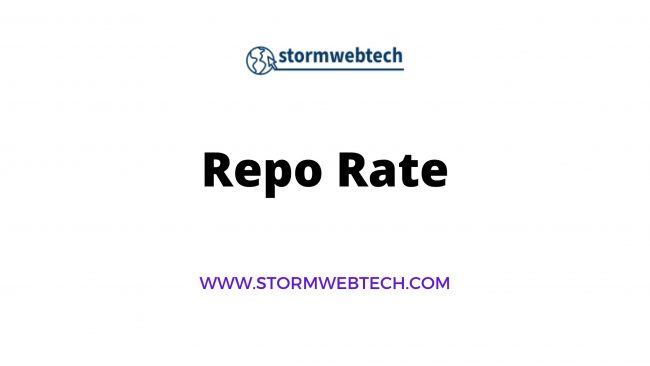Let’s read about What is Repo Rate ?, GK facts about Repo rate India, What is Repo Rate upsc.
What Is Repo Rate ? -:
~ Repo rate is the rate at which commercial banks borrow money by selling their securities to the Central bank of the country to maintain liquidity, in case of shortage of funds or due to some statutory measures. Repo rate is used by monetary authorities to control inflation. Repo rate can be defined as an amount of interest that is charged by the Central bank of the country while lending funds to the commercial banks.
~ The central bank provides these short terms loans against securities such as treasury bills or government bonds.
~ Commercial Banks borrow money from Central bank to maintain liquidity or cash reserve as a precautionary measure.
~ When you borrow money from the bank, the transaction attracts interest on the principal amount. This is referred to as the cost of credit. Similarly, banks also borrow money from Central Bank of the Country during a cash crunch on which they are required to pay interest to the Central Bank. This interest rate is called the Repo Rate.
~ The full form of ‘Repo’ rate is ‘Repurchasing Option’ or ‘Repurchase Agreement’. It is an agreement in which both the parties are required to sign an agreement of repurchasing which will state the repurchasing of the securities on a specific date at a predetermined price. Thus, the bank gets the cash and the central bank the security.
~ The Repo Rate in India is controlled by the Reserve Bank of India.
~ The Central bank increases or decreases the Repo rate depending on the inflation. Thus, it aims at controlling the economy by keeping inflation in the limit.
~ The Central bank aims to hedge and leverage by buying securities and bonds from the banks and provide cash to them in return for the collateral deposited. The Central bank accepts collateral in the form of gold, bonds etc.
~ The Central bank lends money for a short period of time, maximum being an overnight post which the banks buy back their securities deposited at a predetermined price.
~ Repo rate is a powerful weapon of the monetary policy of a country that can regulate the country’s money supply, inflation levels, and liquidity.
~ Any changes in the repo rates can directly impact the economy of the country. The levels of repo rate have a direct impact on the cost of borrowing for banks. Higher the repo rate, higher will be the cost of borrowing for banks and vice-versa.
~ A decrease in the repo rates helps in improving the growth and economic development of the country. A decline in the repo rate can lead to the banks bringing down their lending rate which is beneficial for retail loan borrowers.
~ During high levels of inflation, Central bank makes strong attempts to bring down the flow of money in the economy. One way to do this is by increasing the repo rate. This makes borrowing a costly affair for businesses and industries, which in turn slows down investment and money supply in the market. As a result, it negatively impacts the growth of the economy, which helps in controlling inflation.
~ When the Central bank needs to pump funds into the system, it lowers the repo rate. Consequently, businesses and industries find it cheaper to borrow money for different investment purposes. It also increases the overall supply of money in the economy. This ultimately boosts the growth rate of the economy.
Thank you for reading about What is Repo Rate ?, GK facts about Repo rate India, What is Repo Rate upsc.
Read More -:
- What is RBI ?
- SEBI Chairman list
- RBI Governor list
- Major dhyan chand award winners list
- World Countries and their Capital and Currency
Please do comment and share the knowledge.
